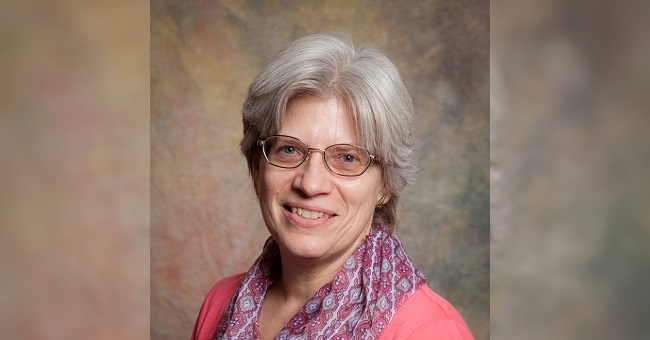Opinion
by Rebecca A. Pace
December, 2023
What happens in “Boston” (the headquarters of the Unitarian Universalist Association—UUA), stays in “Boston,” doesn’t it? Well, yes, that’s the way it’s always worked. Now it seems that “Boston” wants to take control of our individual UU congregational activities as well.
It is premature to approve the proposed bylaws amendment. At UUA General Assembly (GA) 2022, delegates voted to initiate a complete re-write of the bylaws. A “Renewals Team” was commissioned. The Business Resolution stated:
These new bylaws should create a governance system that supports the UUA in accountably achieving its mission and aspirations consistent with our core values.
This process will be mindful of the specific work of the Article II Study Commission charged to renew Article II of the UUA bylaws. There should be communication across these efforts so that they are supportive of each other and so all of our bylaws reflect our Association’s purpose and core values.1
The current UUA President, Rev. Dr. Sofía Betancourt, said during a workshop at General Assembly in 2022, “Covenant without consequences is not actually covenant.” This statement occurred near the end of the recording of the workshop, titled “Accountability, Justice, and Wholeness—UU Theologies of Liberation.” (Access this recording at https://vimeo.com/728450438/7b50aa71e6. The quoted words are at 1:02:08.)
Years ago, when I first participated in the UUA GA as your delegate, I was surprised by the radical resolutions that passed. Resolutions to join “in widespread calls for immediate defunding of police” (20202, 20213), “abolishing ICE” (20202), and “deactivating security systems that mobilize police” (20202) passed by large margins. Many delegates seemed free to vote for the most idealistic solutions to our social justice issues. Delegates were happy to let the UUA figure out how to accomplish these goals without requiring folks back home to roll up their sleeves. The UUA compiled resources and published articles to provide direction, but few congregations put forth serious effort. On face value, these resolutions intended to set the agenda for the UUA, but, in practice, only on the national level.
Back home in Cincinnati, the local social justice agenda took on a more nuanced, interactive, and grassroots approach. We countered racism by education and support of marginalized communities. We fought homelessness and hunger by intentional and significant hands-on support of Inter Parish Ministry and Interfaith Hospitality Network (now called Found House). Similarly, congregations across the country worked in their communities in local, direct ways without adopting the specific goals of the above cited GA resolutions. With the proposed new Article II, I think the UUA is demanding local follow through.
As UUs, we “covenant to affirm and promote” our aspirational seven principles. The proposed Article II amendment uses the word “covenant” seven times, and includes language to hold us accountable to these covenants. Each new covenant includes a sentence telling us exactly how to realize them. These covenants are not aspirational; they are directive and binding.4
The proposed amendment to Article II flips the power structure of the association. The UUA will no longer “serve the needs of its member congregations.” (This statement has been removed from the proposed Article II.)4 The power will flow from the UUA as they “actively engage its members in the transformation of the world through liberating Love.”
What does the proposed Article II mean, in the Values section, when it says “We are accountable to one another for doing the work of living our shared values…?”4 In the revised, proposed Article II, a primary purpose is “to heal historic injustices.”5 Does this mean that a member congregation must devote an acceptable portion of their budget to the healing of historic injustices? The UUA is already collecting information on our annual budget. Will we be judged as sufficiently generous? What would be the consequences if we are found lacking? How will we be held accountable?
What activities count towards healing historic injustices? The UUA seems to have a very narrow focus on how to practice anti-racism. For example, what if we prefer to take on a social justice project involving environmental issues rather than their specific approach to anti-racism; will such activities meet their standards?
Whether the UUA is successful in coercing our congregation to do their will is, of course, questionable. The process to hold congregations accountable to these covenants is described elsewhere in the bylaws and, as currently written, is termed “inefficient.”1 Coercion may not be necessary, if the bylaws are changed to put teeth into accountability.
At GA 2023 we were told to expect to see an initial draft of the revised bylaws at GA 20246, but it now looks unlikely that it will be released before we are asked to vote on the proposed Article II.
It may take some time, but the UUA seems determined that what happens in Boston, happens in our local congregations, in our religious homes as well.
1 Business Resolution – Adopted by the General Assembly – June 2022, Renewing UUA Bylaws for Theologically Grounded and Mission-Focused Governance
2 2020 AIW Amen to Uprising: A Commitment and Call to Action
3 2021 AIW Defend and Advocate with Transgender, Nonbinary, and Intersex Communities
4 Markup Comparison of UUA Bylaws to the Article II Study Commission’s Final Proposed Revision
5 The phrase “to heal historic injustices” was removed from the proposed Article II by a vote of the delegates at GA 2023, but has been reinserted in the current revised proposal.
6 UUA Bylaws Renewal Team Report to General Assembly 2023. (Cincinnatians may be interested to know that, among others, Rev. Connie Simon, J.D., formerly of First Unitarian Church of Cincinnati, has been named to the “Renewals Team.”)

